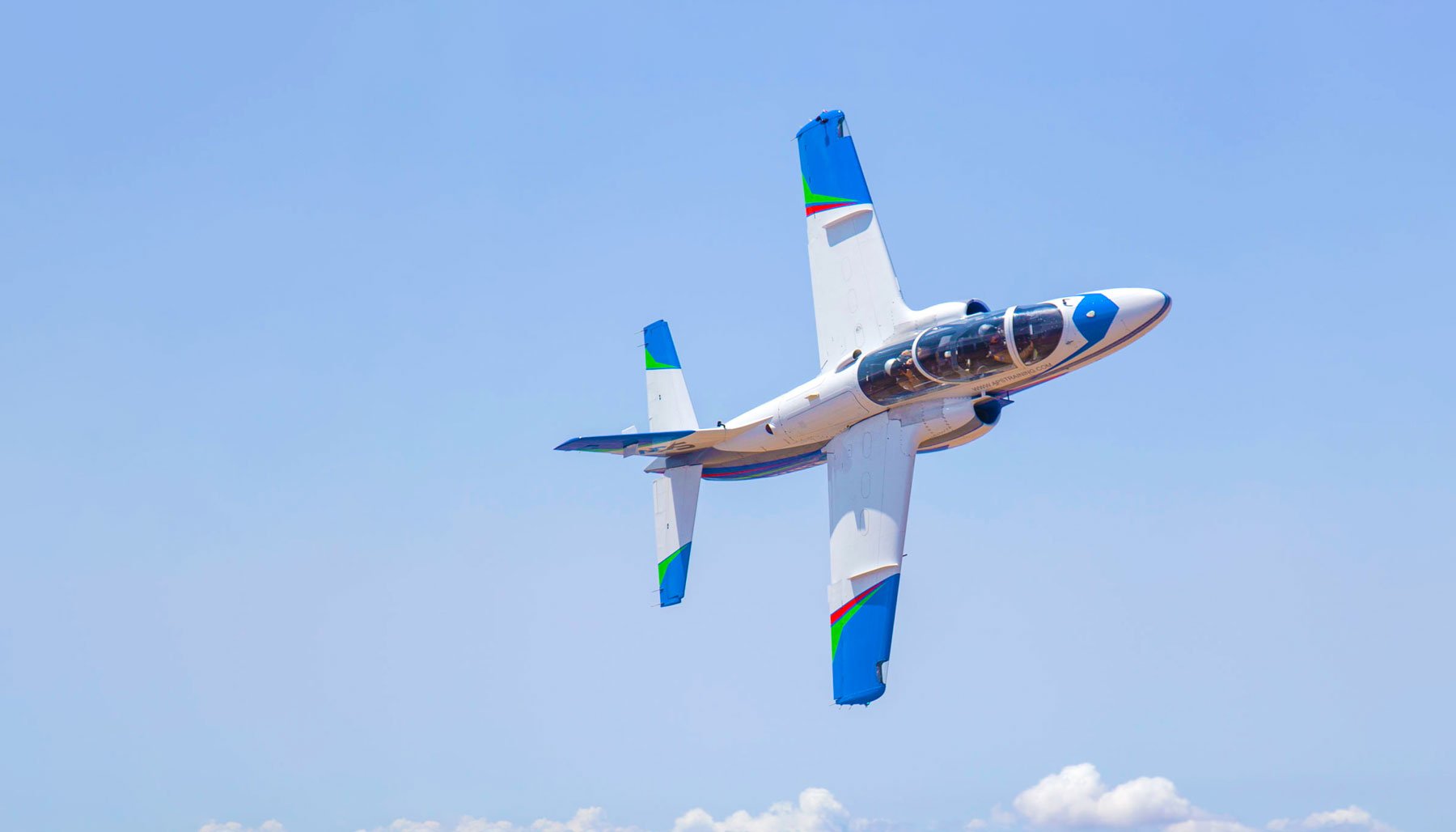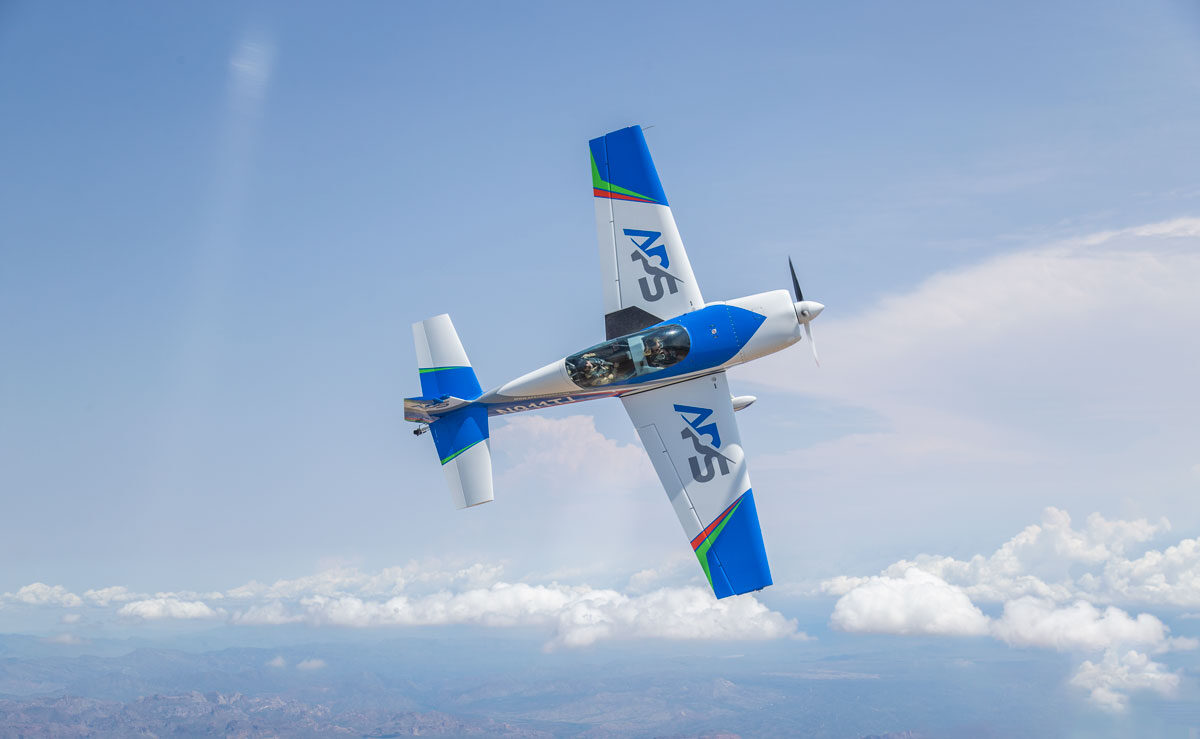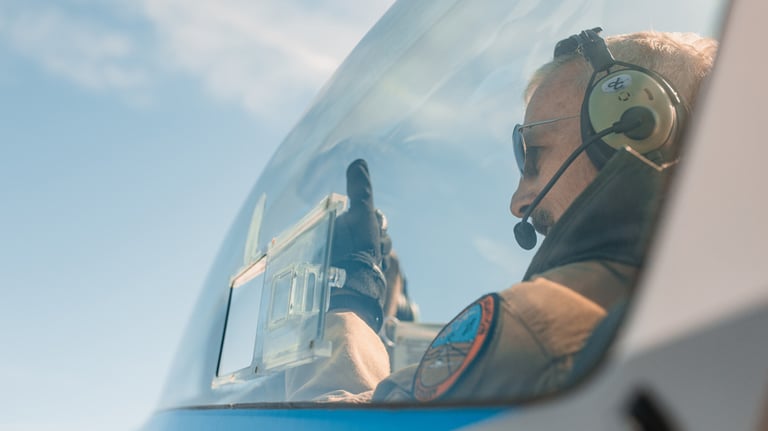The Every Pilot in Control solution standard™ (EPIC-S2)
EPIC-S2 ensures that Upset Prevention and Recovery Training (UPRT) is delivered with consistency, safety, and proven real-world effectiveness.

The Industry Standard for UPRT
Decades of Expertise. Real-world results.
An immediate and accurate pilot response is critical to prevent an airplane upset that can quickly lead to Loss of Control In-flight (LOC-I). Unfortunately, general pilot training requirements do not cover the counter-intuitive and time-critical skills necessary to prevent and overcome LOC-I. For more than three decades, APS collaborated with aviation’s key industry leaders, safety organizations, and regulatory agencies to refine the best practices for effective Upset Prevention and Recovery Training (UPRT).
The Every Pilot in Control Solution Standard (EPIC-S2) is the resulting practical UPRT methodology incorporating the six Critical UPRT Program Implementation Factors necessary to produce an unparalleled and effective UPRT solution for every fixed-wing pilot.


The Every Pilot In Control Solution Standard™ (EPIC-S2™) establishes a benchmark for UPRT, filling a critical gap by providing a unified, industry-leading standard designed to maximize safety and ensure every pilot is equipped with the highest level of upset prevention and recovery training. Each factor is critical, and when integrated together into one seamless program, provides a powerful framework for UPRT that is real-world effective and safely delivered.
Elite instructors
Train with the Best
Global aviation authorities, including ICAO and the FAA, agree that a qualified instructor is the most critical element of effective UPRT. Our UPRT instructors bring thousands of hours of specialized experience as fighter pilots, test pilots, aerobatic pilots, commercial pilots, and Master CFIs. Beyond elite credentials, each instructor completes APS’s rigorous, standardized UPRT qualification program to ensure precise, proven training methods while avoiding negative training. With more Master CFIs on staff than any other flight training organization worldwide, APS instructors deliver excellence in UPRT.
Integrated Program
Academics, On-aircraft, Simulator & VR Training
The most effective, safe, and long-lasting upset training is accomplished through an integrated combination of industry-approved loss of control academics, proper use of all-attitude piston and jet airplanes, and expertly integrated advanced flight simulation training devices when appropriate. The tactical integration of these three training mediums provides an engaging learning environment required to ingrain powerful and resilient UPRT skills.
Training Intensity
Multiple Flights Over Multiple Days
In an unexpected airplane upset, accurate decision-making, resilience and measured reaction times are critical. Behavioral studies show practicing a skill multiple times intensely over multiple days develops deeper learning, faster decision-making and precise reaction time with accurate control response. Our minimum profile of four flights over three days builds the vital structured response, decision making, and reaction times you need to safely recover from a wide diversity of airplane upset conditions and provides a level of instruction that will allow those skills to remain second-nature should an event occur months or even years after training.
Best Practices Compliant
FAA/EASA/ICAO
Addressing regulatory-defined training content is a bare minimum and not optional. Some UPRT providers may skip what they think doesn’t matter, which is unacceptable. Over the past three decades, APS has worked closely with regulatory agencies and oversight organizations such as ICAO, EASA and the FAA to help them establish guidance and best practices for safe and effective Upset Prevention and Recovery Training. UPRT training at APS is in strict compliance with these guidelines, adhering to the strictest safety standards and proven training practices, and, most importantly, also includes critical features these organizations have missed.
Purpose-Built Platforms
Safe, Certified, All-Attitude Capable
On-aircraft training in an all-altitude aerobatic-capable airplane is essential for pilots to develop advanced manual handling skills, effectively develop a three-dimensional mental model, and overcome critical human factors that often derail successful upset prevention or recovery in a real world crisis event. Together with expert instructors following a comprehensive training curriculum, safe all-attitude aircraft that are fully recoverable from inadvertent spins assure the delivery of a complete program while guaranteeing a margin of safety essential to safe and effective UPRT.
Initial and Recurrent Training
Multi-day Initial with 1-Day Recurrent
The intensity of the initial APS UPRT program establishes a long-term, renewable knowledge and skill foundation that can be completely refreshed every year in a short, one-day recurrent course. The APS Every Pilot in Control Solution Standard includes the ability for pilots to take control of the design, content, and structure of their annual recurrent training sessions. In addition to the single day recurrent, pilots and flight departments can optionally choose from comprehensive menu of enhancements they feel best fits their personal and operational needs.
Key Resources

Safety Culture in Motion: What Strong Flight Operations Do Differently
Discover what sets high-performing flight departments apart and how evolving safety culture, SMS alignment, and pilot competency strengthen operational safety.
Read More
Safety Culture in Motion: What Strong Flight Operations Do Differently
Discover what sets high-performing flight departments apart and how evolving safety culture, SMS alignment, and pilot competency strengthen operational safety.
Read More
Preparation Calms Fear
Listen in as APS EVP Randy Brooks joins Nico Barraza to explore how advanced pilot training prepares us to stay calm, focused, and effective in a crisis.
Read More
Preparation Calms Fear
Listen in as APS EVP Randy Brooks joins Nico Barraza to explore how advanced pilot training prepares us to stay calm, focused, and effective in a crisis.
Read More


